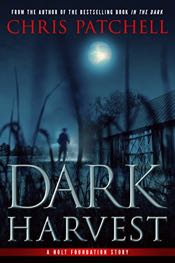If they’re right when they say that sitting is the new smoking, although I’ve never had a cigarette in my life, I have a 2-pack a day habit!
I spend way too much time sitting. It’s not a new problem. My 20+ years working in hi-tech also involved a lot of sitting.
I spent hours in meetings and working on my computer, but back then I found more ways to move—walking to meetings, to lunch, and spending my 1:1’s exploring the trails around the office. Working at home though, I don’t get much exercise, other than jumping up to switch the laundry around.
I know. First world problems, right?
Surely Walking the Dogs Makes Up for Sitting So Long?
When I left my tech job and setup my home office, I bought a really great office chair. Though it was expensive, investing in my back health was a wise thing to do.
The other thing I do almost every morning is to take my dogs for a walk before I seriously get down to work, rain or shine. Living in the Pacific Northwest, rain is just a way of life, so I’ve gotten used to slapping on my rain hat and heading out, even on those “pea soup” kind of days.
I try to convince myself that walking the dogs makes up, in small part, for sitting so long.

You’d Think After My Third Novel I’d Be Able to Silence the Voices of Self-Doubt
Like a lot of writers, I struggle with self-doubt.
You would think that after my third novel and all the success I’ve experienced so far, I’d be able to silence those voices in my head that erode my self-confidence, but it’s not that simple.
I’ve undergone a lot of changes this year (quit my full-time job, moved with my family to a new town), and I’ve struggled to get back into a productive writing routine. I underestimated the impact of these transitions emotionally. BUT, I am very lucky to have the opportunity to work on my writing full-time, and I’m experimenting with my routine to try and optimize my creativity.
I find that journaling helps. Dumping all of those negative thoughts onto paper makes them more manageable. Purging them from my head helps me get productive again.
Talking with my husband (and best friend) also helps. When I complain that it feels like I’m crawling along the path I’ve chosen and have made little progress, he reminds me how far I’ve come. Perspective really is everything.
I’ve long believed that you can’t let fear stop you from doing the things that you want to do. I remember that every time my inner critic rears its ugly head and tells me that I’m failing. I recognize the feelings and move past them.

The Only Way to Become a Better Writer is to Keep Writing
[What has been your darkest moment?]
This is a tough question because there have been more than a few. One of the most difficult moments came early on in my writing journey.
I had written the first draft of my first novel and I was revising it. I was part of a critique group. One of my critique partners gave increasingly scathing feedback on my work.
Professionally, I’ve always embraced feedback as a valuable tool for improving, but the kind of feedback he provided felt personal. Damaging.
I was sitting in a coffee shop one rainy afternoon when I realized that I was avoiding revising a chapter because I didn’t want to face what this person had written. It made me feel like the worst writer in the world. I felt like quitting.
But then I realized something—the only way to become a better writer was to keep writing, and the only way I would fail would be to quit. I decided to keep going. Keep writing. Keep getting better.
So, I quit my critique group and continued editing the story. After a lot of revising and soul searching, that novel won an Indie Book Award for best fiction. Now I belong to a great critique group whose goal is to support each other and provide constructive feedback.
Working with the right people who share your ideals is very important. If something isn’t working for you, don’t hesitate to leave it behind.
Even When I Feel I’m Beating My Head Against the Wall, I Have to Write
Passion, above all, has kept me true to my path.
I’ve always wanted to be a writer and I have a deep desire to succeed. So even when I experience setbacks, even when I feel like quitting, I give myself some time to deal with the emotions, and then I get back to work. I make it sound easier than it is.
There are times when I feel like I’m beating my head against the wall, but I have to write. It’s a part of who I am and I want to be the best version of myself.
Advice for a Young Writer: Make Sure You Have Supportive People Around You
All writers experience rejection and setbacks. Figure out strategies for not letting these experiences undermine your confidence (whether it’s being rejected by agents, getting bad reviews, or whatever).
Make sure that you have supportive people around you. I’m fortunate to be surrounded by a fabulous group of people who inspire me to keep going, especially when things are hard.
* * *
Chris Patchell is the bestselling author of In the Dark and the Indie Reader Discovery Award winning novel Deadly Lies. Having recently left her long-time career in tech to pursue her passion for writing full-time, Chris pens gritty suspense novels set in the Pacific Northwest, where she lives with her family and two neurotic dogs.
For more information on Chris and her work, please see her website, or connect with her on Facebook and Twitter.
 Dark Harvest: Becky Kincaid ventures out in the middle of a snowstorm to buy a car seat for her unborn baby and never makes it home. When a second pregnant woman disappears, Marissa Rooney and the team at the Holt Foundation fear a sinister motive lurks behind the crimes.
Dark Harvest: Becky Kincaid ventures out in the middle of a snowstorm to buy a car seat for her unborn baby and never makes it home. When a second pregnant woman disappears, Marissa Rooney and the team at the Holt Foundation fear a sinister motive lurks behind the crimes.
Lead investigator, Seth Crawford, desperately searches for the thread that binds the two cases together, knowing that if he fails, another woman will soon be gone. While Seth hunts for clues, a madman has Marissa in his sights and she carries a secret that could tear her whole world apart.
Can Seth stop the killer before he reaps his…
Available at Amazon.

